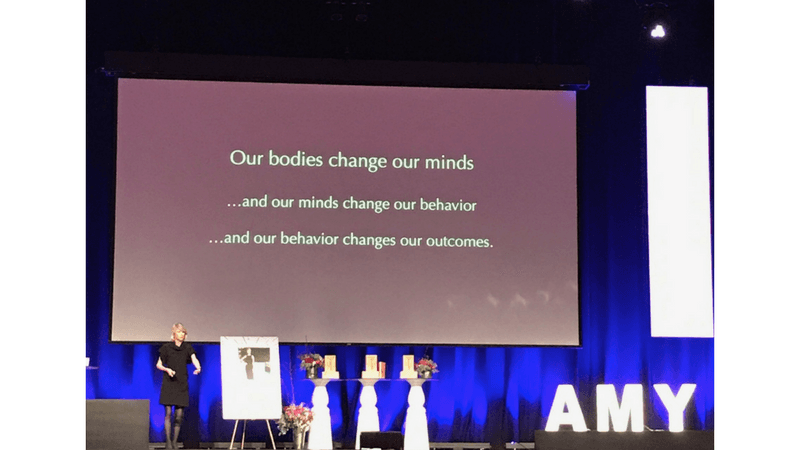By Riza Karis
•
March 26, 2025
I recently had the pleasure of attending the B&T 30 Under 30 awards and had the chance to meet some incredibly talented rising stars in the industry. One standout was Aoife Lehane, a candidate we’ve had the privilege of working with, who was nominated and shortlisted in the Account Management category. Honestly, I wasn’t surprised at all—anyone who meets Aoife can immediately see how ambitious, creatively driven, and sharp she is. Here’s a look at her B&T 30 Under 30 experience and a glimpse into her impressive career: From starting your career in Dublin, to moving to Sydney and landing a fantastic role through iknowho at one of Australia’s top agencies, you’ve had an amazing career to date. Can you tell us a little more about your background? I have learned from some extremely talented people throughout my career to date and count myself very lucky to have had been afforded some amazing opportunities. I started my career at a boutique indie agency in Ireland where I got invaluable hands-on experience running my own accounts and pitching for new business quite early on. From here, I made the move to Droga5 in Dublin working on some of the agency’s largest clients. Whilst at Droga5, I went through a career crossroads moment where I was debating becoming a planner and actually spent 6 months working in the strategy department which I absolutely loved. This stint in strategy taught me invaluable skills that I use in my role everyday. Ultimately, I decided to stay in account management (if you hadn’t guessed!) as I couldn’t shake the curiosity of seeing the whole process come to life and the ability to really influence the work in all phases, beyond just what I touched in strat. It sounds cliché but I’m also a real people person and I thrive off building relationships. In my opinion, account management are the real beating heart of an agency, and I thrive in that role and the exposure it gives you to all areas of the business. When I decided that I was moving to Sydney I reached out to Riza at iknowho whilst still in Ireland. Not knowing the Australian market was extremely daunting but her knowledge and experience put me completely at ease. She really understood me, my ambitions and the type of agency I wanted to work in for the next chapter in my career and I couldn’t be happier with how it worked out. The calibre of talent in the mix was extremely high this year. How did it feel to be a finalist at this years’ B&T 30 under 30? And what inspired you to participate? I feel so incredibly grateful to have been up there with some amazing individuals who have achieved so much in their careers already. Personally, it was such a lovely moment to be recognised amongst such a talented group of people who have come from different backgrounds and corners of the globe. Having diversity in career paths and experience is so important for our industry to bring fresh perspectives and thinking – it only benefits the work, the people who make it and the people who see it. It was actually this time last year, seeing the finalists and the stories from past winners that inspired me to enter - I turn 30 this year so I figured if not now, when! What did you learn throughout the process of applying and what advice would you give to others looking to participate next year? Also, how did your agency help to support you in the process? I really enjoyed the process of applying and the moment of reflection it gave me on my career to date. So often I’m looking ahead to the next thing and don’t take the time to reflect on what I have achieved already. As someone who can be very hard on themselves, it was a really eye-opening and rewarding process to take part in. The 3 pieces of advice I would give to others looking to participate next year would be: 1: Think about the narrative you want to land from the start and how you weave that narrative through your response to the questions and constantly re-enforcing your point. 2: For me, it helped to get everything down on paper and then treat it as a bit of a creative review to condense and tighten (my first draft was 9 minutes long!) 3: Lean on those around you for their advice and point of view, you can get stuck in your own head when it comes to the submission, so it’s good to have those around you to offer that fresh perspective. I work with some very talented people who were extremely generous with their time not only offering me their advice and feedback but also their videography and editing skills to give my submission that final polish – it takes a village! There is no doubt that being a finalist helps elevate your profile, what other benefits do you see from being shortlisted and are there any other awards in your sights for the future? Not being from here it can be a little bit harder to “break into the industry” and make a name for yourself, as an expat I have found it hugely beneficial in that respect. Even this opportunity from the team at iknowho to do this profile piece has been really valuable and a great privilege that I don’t take for granted. In terms of personal awards, there’s nothing specific that I have my sights set on in the immediate, but I am open to whatever opportunities come my way. Forbes 30U30 would be a good one but I would want to get busy! What’s next for you, where do you see yourself in five years? Anyone who knows me has heard me say I want to be on that stage in Cannes.. so hopefully that will have happened. With the world we’re living in right now and the constant conversation around the value of creativity (which I believe is not only monetary, but also the value it provides to society) I’m driven by the opportunity to create something that people really connect with and makes a lasting impression in the world.. whether that’s as simple as just making people smile or changing societal behaviour for good - the pursuit of that is what drives me. I’m energised by working with likeminded people who share my ambition but not always a similar point of view. I love the process of sharing those different points of views and different ways of thinking and what brings to fruition. That to me is what makes the industry we work in so interesting and one I love being a part of. Ultimately, I would love to be in a leadership role in an agency where I have the ability to make a real impact and influence the direction for the future of the industry. -- Thank you so much, Aoife, for sharing your journey, insights, and advice. Your passion and drive are truly inspiring, and we have no doubt you’ll continue to make waves in the industry. We can’t wait to see what’s next for you! If you're looking for your next role within the junior-mid levels across agency or the perfect candidate to add to your team get in touch with Riza today!











